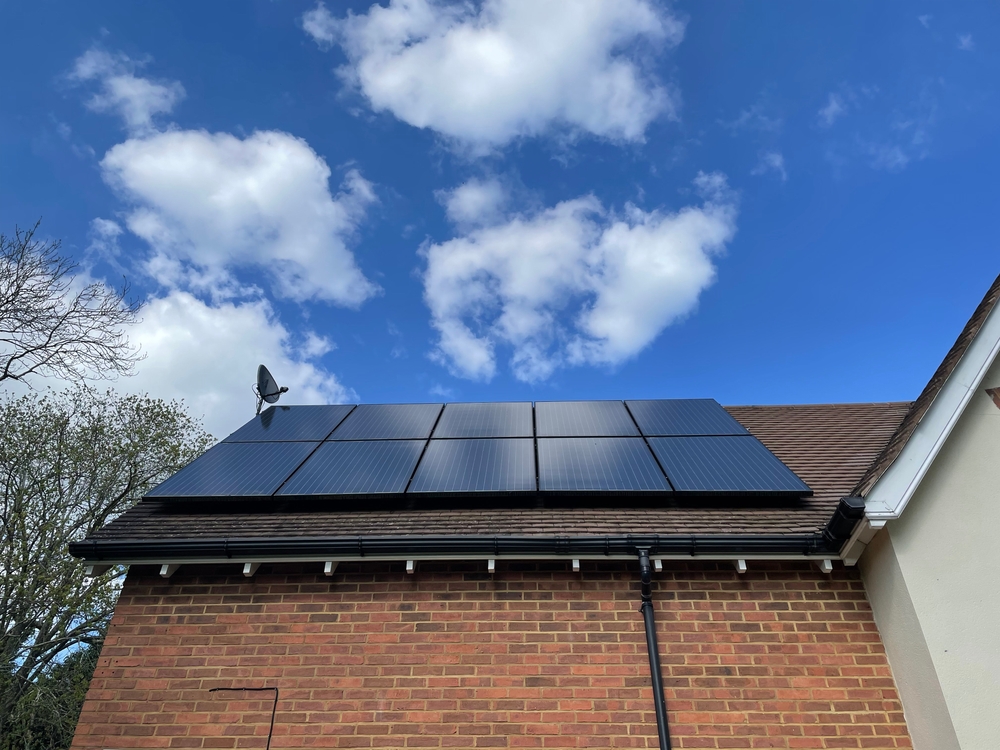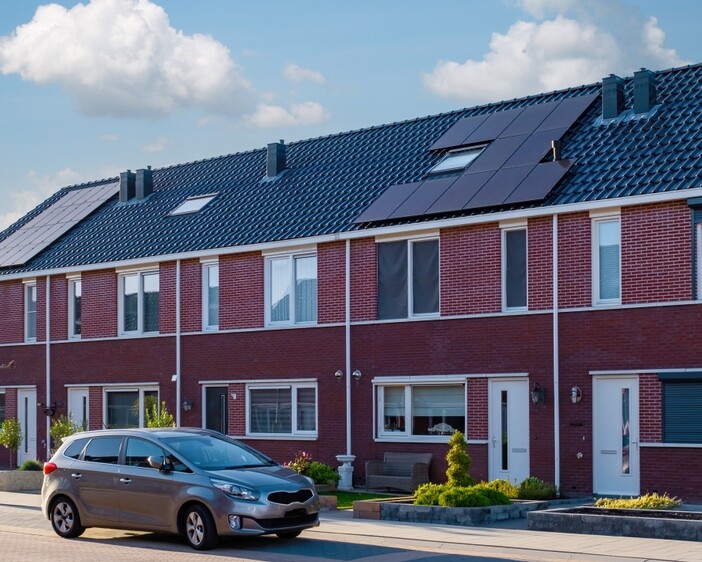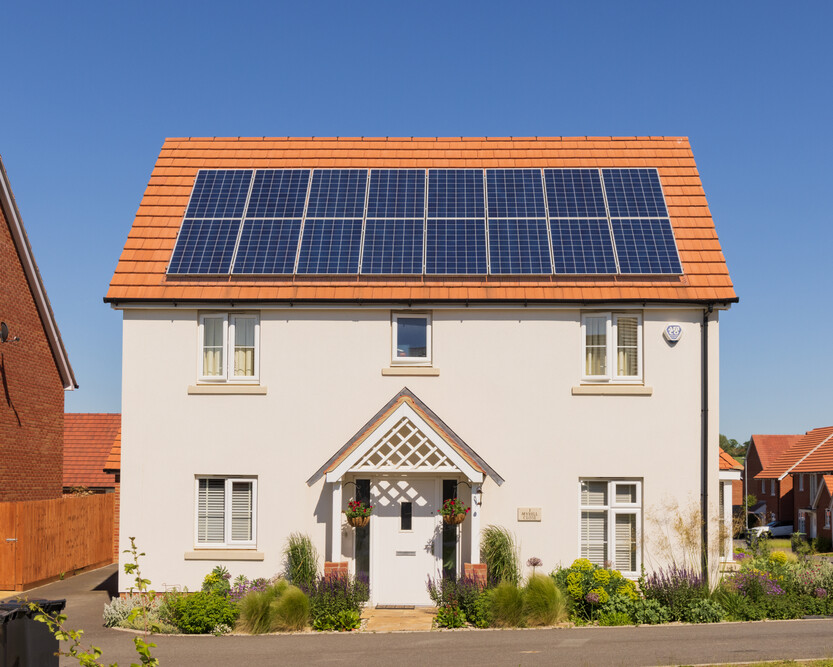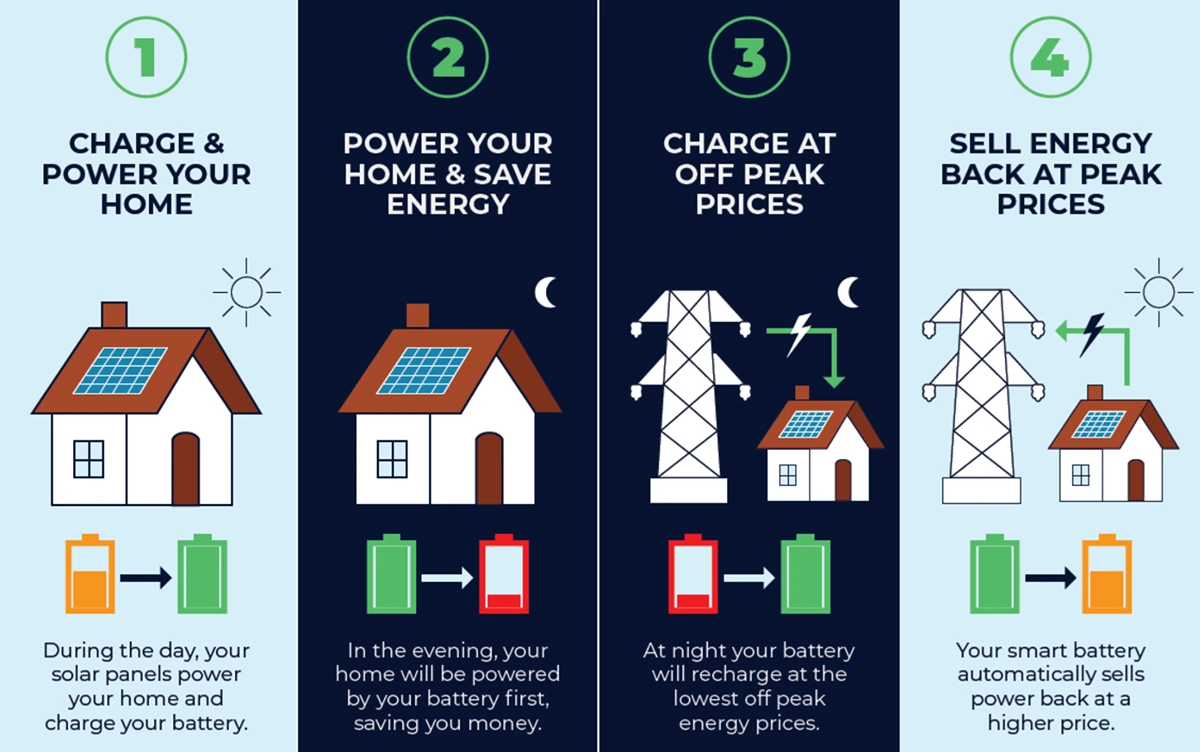Solar Panels Scotland Grants

Your panels will generate free energy during the day, and your batteries will provide free energy at night, reducing your bills by 70%.

With the Smart Export Guarantee (SEG) and a home battery, your system can store cheap energy and sell excess back to the grid — helping you save and earn over £1,000 a year

Solar panels re-pay their carbon cost to create within 1.5 years making them a high performing carbon reduction technology.
Solar Panel Installations in the UK and Ireland
Solar panel installations are becoming more common across the UK and Ireland, as more households and businesses look to reduce energy costs and lower their environmental impact. Solar energy is a reliable, renewable option that can help reduce dependence on fossil fuels and contribute to national climate goals.
How Solar Panels Work
Solar photovoltaic (PV) panels convert sunlight into electricity. These panels are usually mounted on rooftops or installed on the ground. The electricity generated can be used to power your home or business, and any unused energy can be stored in batteries or exported to the grid, depending on your setup.
Support Available
Depending on your location, you may be eligible for various forms of advice or financial support:
- United Kingdom (England, Scotland, Wales, and Northern Ireland):
Homeowners and businesses may qualify for schemes such as the Smart Export Guarantee (SEG), which compensates small-scale generators for surplus electricity exported to the grid. In Scotland, support and advice are available through Home Energy Scotland, a government-funded service. - Ireland:
In the Republic of Ireland, support for solar installations is available through the Sustainable Energy Authority of Ireland (SEAI). Grants are offered to help cover the cost of solar PV systems for homes and certain business types. The SEAI also provides advice and guidance for making properties more energy efficient.

Save on your energy bills
One of the benefits of solar panel installations is the potential cost savings on energy bills. By generating your own electricity, you can reduce your reliance on grid electricity, which can be expensive. Depending on the size of the solar panel installation and the amount of electricity generated, it’s possible to significantly reduce energy bills or even eliminate them altogether.
Find out if your home qualifies for government energy grants
Another benefit of solar panel installations is the potential to earn money through government incentives. In Scotland, homeowners and businesses can apply for the Feed-in Tariff (FIT) scheme, which pays them for the electricity they generate through solar panels. The FIT scheme is no longer accepting new applications, but existing installations are still eligible for payments. These incentives can help to offset the upfront costs of installation and make solar panel installations more affordable for homeowners and businesses.
In addition to cost savings and government incentives, solar panel installations can also help to reduce your carbon footprint. By generating your own renewable energy, you can reduce your reliance on fossil fuels and contribute to a more sustainable future.
However, it’s important to note that solar panel installations do have some limitations. They require a certain amount of space and access to sunlight in order to generate electricity, so not all homes and businesses are suitable for installations. Additionally, the upfront costs of solar panel installations can be expensive, although the long-term cost savings and government incentives can help to offset these costs.
If you’re interested in solar panel installations, it’s important to do your research and find a reputable installer. Home Energy Scotland can provide advice on finding an installer and can also provide information on other energy efficiency measures, such as insulation and heating upgrades.
Why Solar
The utilization of solar panels presents a multitude of advantages, encompassing reduced electricity expenditures, safeguarding against escalating energy costs, and overarching economic gains. These panels epitomize environmental responsibility, actively mitigating carbon emissions while concurrently affording financial relief. Functioning through photovoltaic cells comprised of semi-conductive materials, such as silicon, solar panels convert sunlight into electrical energy. Each individual panel has the capacity to yield approximately 355W of power under optimal sunlit conditions.
In the context of the United Kingdom, the adoption of solar panels by homeowners holds the potential to yield substantial annual savings, culminating in a potential reduction of up to £422 in energy expenses. The implementation of the Smart Export Guarantee (SEG) necessitates significant energy suppliers to remunerate producers of renewable electricity for contributions to the National Grid, offering a tariff of up to 7.5p/kWh. The resultant average annual household savings aggregate to £212.


Within the UK landscape, the installation of a conventional 3-kilowatt peak (kWp) solar photovoltaic (PV) system yields an estimated annual electricity output of approximately 2,300 kilowatt hours (kWh), effectively covering around 79% of the average household’s electricity consumption.
Remarkably, the efficacy of photovoltaic cells extends beyond clear days, remaining operational even amidst cloud cover, thus ensuring sustained electricity generation independent of direct solar irradiance.
Since the year 2017, residences equipped with solar panel systems have consistently demonstrated the capacity to exceed 100% of standard household electricity requirements in urban locales throughout England, Ireland, Scotland and Wales grants and 0% loans available for solar.
Learn What Support You’re Eligible For
UK Government grants are available to help lower your energy bills and improve your home’s efficiency.



